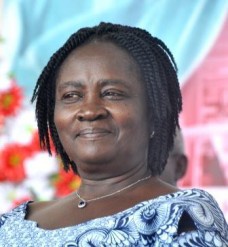
Professor Kwame Akyeampong, a Senior Lecturer in International Education at the University of Sussex, has called for the strict reassessment of the content of Ghana’s educational curriculum to make graduates more productive and independent.
This, he said, would ensure that graduates produced by the system acquired the requisite skills needed by industry for national growth, and able to effectively engage in national policy discourse.
Prof Akyeampong was delivering a keynote address at a two-day international conference on Education Research for Development in Africa which opened in Accra on Monday.
The conference, which is being organised under the auspices of the School of Education and Leadership of the College of Education, University of Ghana, and the Department of Education, University of Sussex is on the theme: “Harnessing Education Research for Evidence-Based Development”.
Prof. Akyeampong said it was unfortunate that Ghana’s educational systems fell short of providing students with the skills for their independence once they completed their courses.
He noted that due to the default, the successful education that the country professed to have attained did not reflect in the capacity of graduates being turned up in recent times.
He said the situation was very worrying and made it very vital for researchers to re-look at the content of the various curricular of education to ensure that what was being taught in the classroom was made practical and beneficial for development.
Prof Akyeampong said the entire educational system was deformed, overlooking the issue such as equity, quality, affordability and gender disparity, and mistaking the successes in enrolment levels to mean all-inclusiveness, but this had been in favour of the rich as against the poor, who could not afford the rising cost of secondary and tertiary education.
The success of the educational system would, therefore, require a total overhaul of both content and a correction of all existing gaps such as the huge gender disparities and high school drop-out rates among girls as they progress from the basic through to junior high and senior high schools to the university, even though high basic school enrolment are being recorded each year.
Prof. Akyeampong said unfortunately the gender parity that had been achieved was in favour of the rich, bringing to the fore the issue of affordability which must be critically addressed if Ghana wanted to realise any meaningful growth and development.
He said the role of research was important if the issues raised were to be addressed and called for quality research and stakeholder collaboration to ensure that researches carried out addressed the real problem and made meaningful impact on the lives of people.
Prof. Cephas Omanyo, Provost of the College of Education, University of Ghana, said the conference would discuss topics including Gender, Equity and Social Justice, Framing Quality Education for Equitable Learning, Teacher Education for School Improvement and Educational Leadership for School Improvement.
It would also create the needed opportunity for researchers to grow their research capacities and form research networks with like-minded partners, with the aim of establishing an education research network that would be positioned to address the pressing needs facing education in Ghana and in the sub-region.
Prof. John Gyapong, Pro-Vice Chancellor of the University of Ghana, said the establishment of a network of researchers that would frame, influence and critique respective national policies on issues of education that affected the country was urgently needed, and such an association would generate opportunities for competitive research studentships.
He thanked the University of Sussex for its collaboration with the University of Ghana, which would enhance teacher education and also quality research into educational issues.
The conference focuses on how education research can provide insights into some of the development challenges in the African context, and some areas to be covered include policy analysis in education as well as theorising quality education, power and politics in education research.
It would also set a discussion on understanding gender, equity and social justice in development discourse, shifting paradigms of education research and educational leadership in cultural contexts among other things.